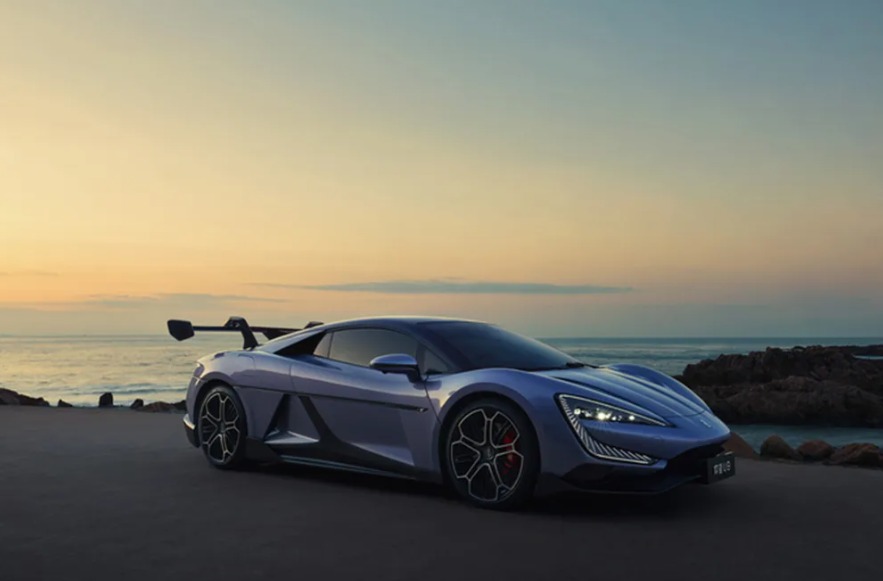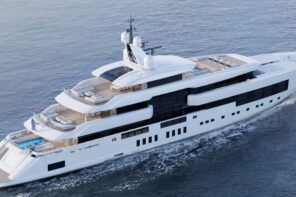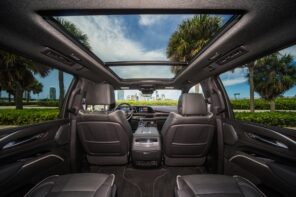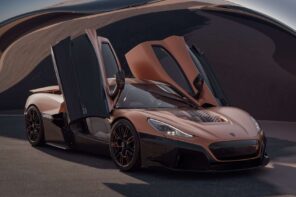Over the weekend, the Chinese automaker unveiled its inaugural all-electric supercar, dubbed the Yangwang U9, signaling a bold leap into uncharted territory for the brand as it aims to rival the prestigious names of Ferrari and Lamborghini.
After surpassing Elon Musk’s company to claim the title of the world’s leading EV manufacturer, BYD seems intent on closing the gap with renowned sports car marques. The latest addition to its lineup is part of the upscale Yangwang sub-brand, which made its debut last fall with the U8, a luxurious SUV equipped with innovative features such as emergency flotation capabilities.
The U9 marks a significant departure in design from previous BYD models. Unlike the company’s earlier EVs, including those under the Yangwang label, which typically featured a sleek, aerodynamic profile reminiscent of Tesla’s design language, the U9 boasts a distinctively sculpted appearance tailored for high-performance driving. With its aggressive front fascia, striking dihedral doors, and imposing rear wing, the coupé exudes an unmistakable aura befitting a true supercar.
However, the U9’s allure extends beyond its striking design to its formidable powertrain. Built on BYD’s advanced e4 Platform, the model features a quad-motor setup, with each motor strategically positioned at every wheel. This configuration yields an astounding output of 1,300 horsepower and 1,239 lb-ft of torque, enabling the car to accelerate from zero to 60 mph in a mere 2.36 seconds and reach a top speed of 192 mph—a performance benchmark unparalleled in the current BYD lineup.
While these specifications are undeniably impressive, the true test lies in whether the U9 can deliver an authentic supercar experience. Thus far, the Rimac Nevera and Pininfarina Battista have been the sole electric vehicles to offer the exhilarating performance expected from this elite class. However, both these models command a price tag upwards of $2.4 million, significantly higher than BYD’s ambitious pricing strategy for the U9, which is set to debut exclusively in the Chinese market at approximately $233,450 (or 1.68 million yuan). Despite the stark contrast in pricing, if BYD can fulfill its promises at such a competitive price point, it is poised to attract considerable interest from enthusiasts eager to embrace the future of electric mobility.





